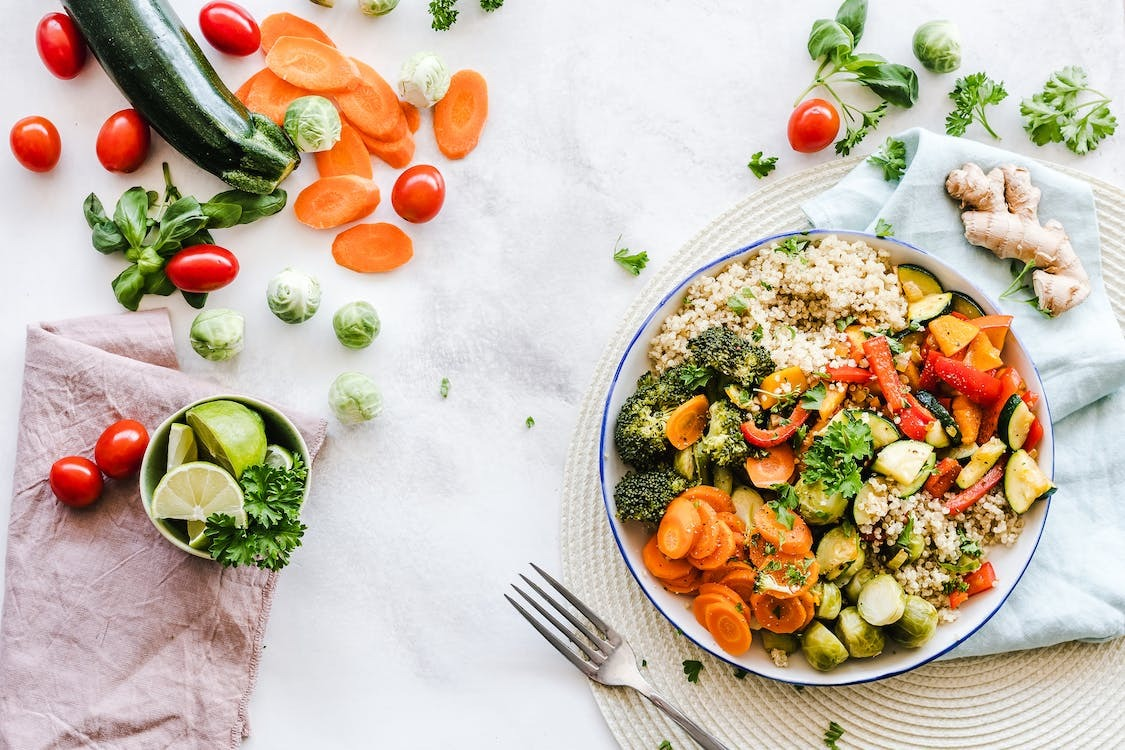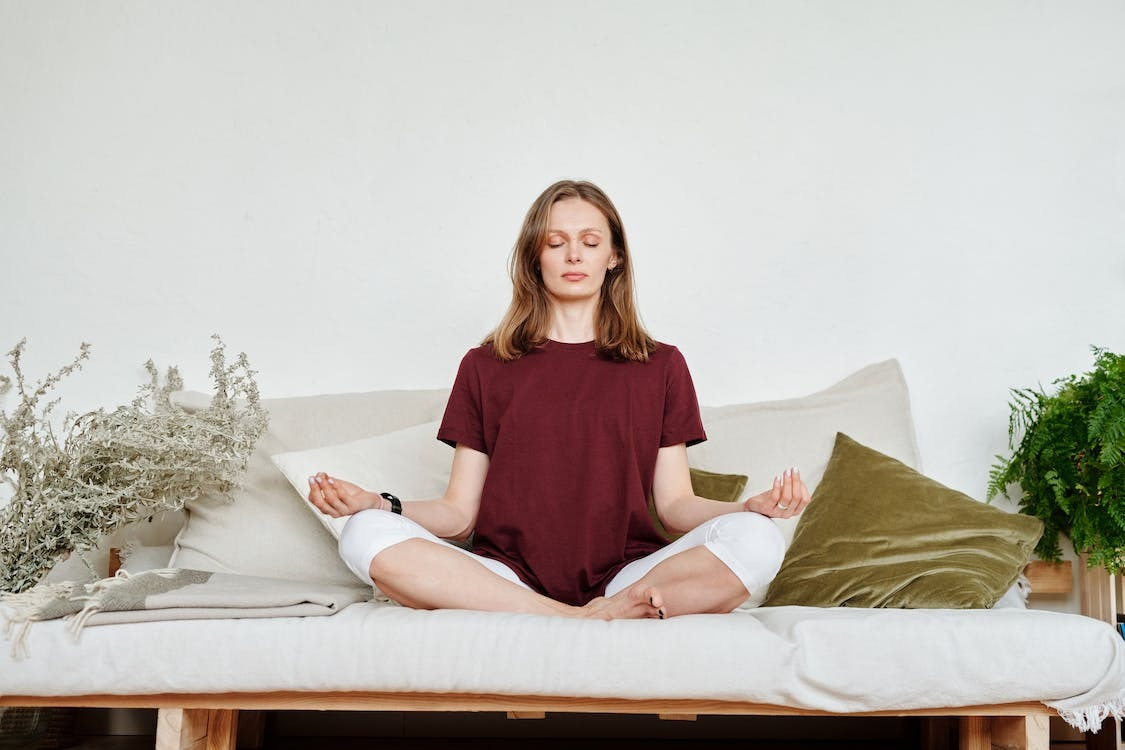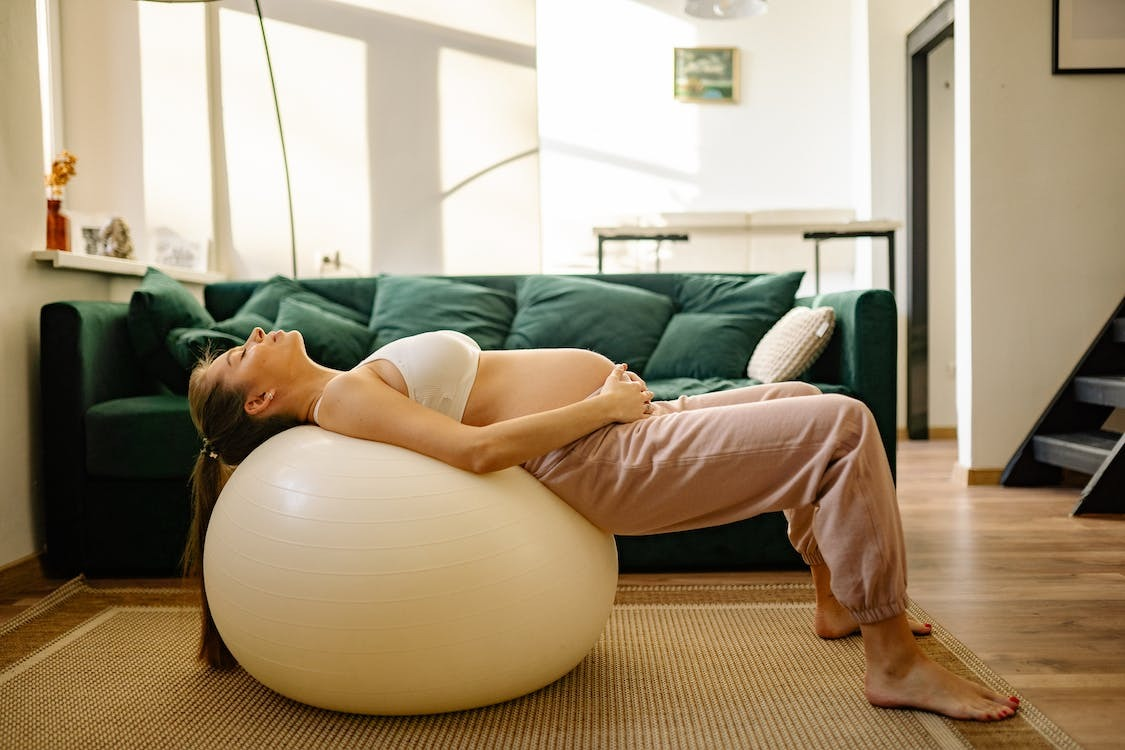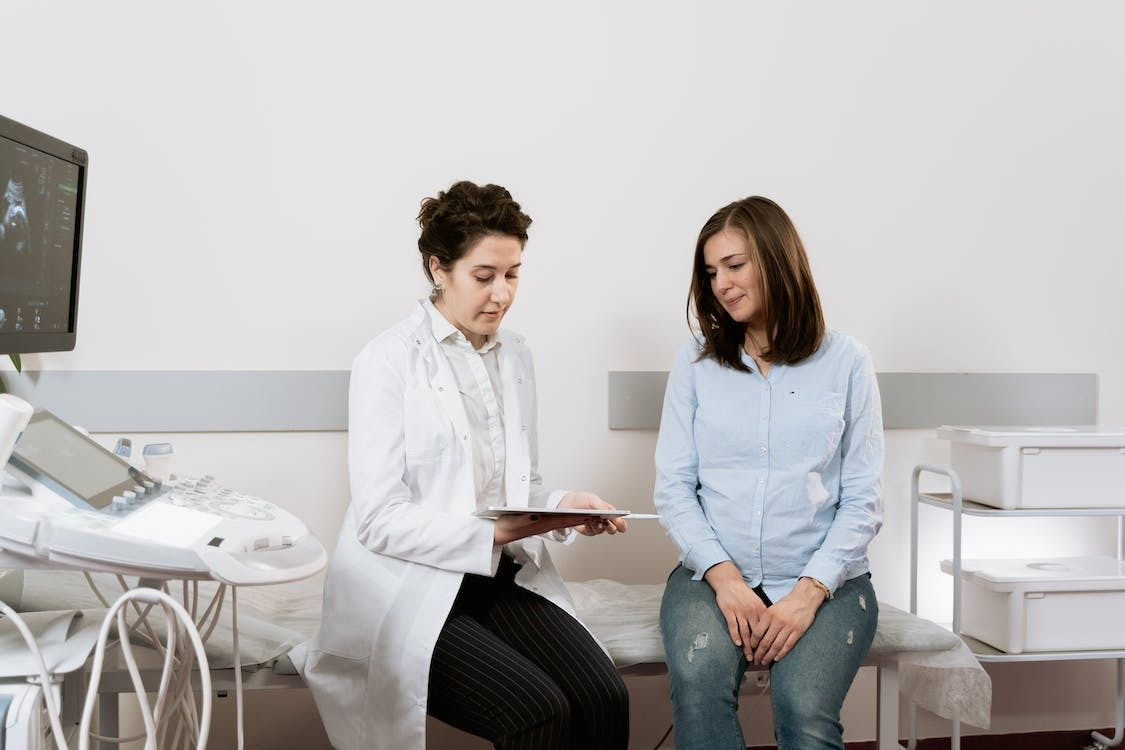Being pregnant is both a beautiful and challenging experience for many women. The physical changes during pregnancy can be uncomfortable, leaving you feeling fatigued or sore. As you prepare to bring a new life into the world, taking care of yourself and finding ways to stay comfortable during this time is important.
Therefore, in this article, we'll discuss how to get comfortable when pregnant and share some tips for you so that you’re able to manage the common discomforts of pregnancy and make it as easy as possible.
So, read on to learn more!
Common Causes of Discomfort During Pregnancy
During pregnancy, your body is going through a considerable amount of change, usually resulting in aches and pains. Here are some of the most common causes of discomfort during pregnancy:
In the third trimester, approximately 1/3 of pregnant women struggle to find comfortable sleep positions, leading to restless nights and tiredness during the day. The growing belly can make even the most tried-and-tested sleeping positions seem impossible, causing significant sleep troubles.
Morning sickness is another common affliction, impacting nearly 2/2 of all pregnant women at some point. This can disrupt sleep hygiene, making falling asleep or enjoying a good night's sleep difficult.
Restless legs syndrome is a further issue that some women develop or experience worsening symptoms of during pregnancy. This condition can lead to sleep disturbances, making it harder to fall asleep or stay asleep throughout the night. Similarly, sleep apnea can also develop or worsen during pregnancy, contributing to sleepless nights and a lack of quality rest.
Physical discomfort isn't the only problem that can disrupt sleep. Gestational diabetes, for example, can also cause discomfort and disturb sleep patterns.
Nutrition During Pregnancy

Nutrition during pregnancy is incredibly important for both the mother and baby. It not only aids the baby's development but also keeps the mother's body healthy and well-prepared for childbirth. Moreover, it can help pregnant women maintain comfort and improve sleep quality.
A balanced diet can help manage common pregnancy discomforts such as morning sickness, heartburn, or indigestion that often disrupt a good night's sleep. High-fiber foods like whole grains, fruits, and vegetables can help prevent constipation, another common issue during pregnancy.
The recommended diet for pregnant women includes a variety of nutrient-rich foods.
-
Protein-rich foods like lean meats, fish, eggs, and beans are essential for the baby's growth.
-
Fruits and vegetables provide necessary vitamins and minerals, while dairy products supply calcium for the baby's bone development.
-
Complex carbohydrates like whole grains provide energy and help maintain steady blood sugar levels, potentially reducing the risk of gestational diabetes.
-
It's also important to stay hydrated by drinking plenty of water.
-
Moreover, avoid junk foods and processed foods that are high in fat, salt, or sugar, as these can cause weight gain and other health risks.
By following a healthy and balanced diet during pregnancy, you can help maintain your comfort levels and achieve better sleep hygiene.
How to Stay Comfortable in the Third Trimester?
Due to the expanding uterus, the third trimester is often the most uncomfortable and challenging of pregnancy. Therefore, many women find it beneficial to use a pregnancy pillow for support and comfort.
Pregnancy pillows relieve the evolving contours of a pregnant woman's body and can relieve areas like the back, hips, and belly. This can aid in finding a comfortable sleep position by reducing trouble sleeping caused by physical discomfort. Another supportive item, such as a maternity belt, can also be helpful. They offer gentle compression and support, which helps distribute the baby's weight more evenly across the abdomen and lower back. This releases pressure and eases discomfort.
Maternity clothing is also important for comfort during the third trimester. Wearing loose and breathable clothes made from soft fabrics can make a big difference in helping you feel comfortable.
Taming Tummy Troubles

It's not only what pregnant women eat but also when they eat that influences their comfort levels. Taming tummy troubles during pregnancy can be a challenge, but dietary recommendations and regular eating can significantly help.
Firstly, it's important to highlight the significance of regular eating. Pregnant women should aim to eat small meals frequently throughout the day rather than three large meals. This helps maintain stable blood sugar levels, reducing bouts of nausea and other digestive issues. Moreover, eating regularly can also help manage feelings of fatigue that are common in pregnancy.
Secondly, dietary choices can make a significant difference. Certain foods are known to exacerbate tummy troubles during pregnancy. For instance, spicy foods and those high in fat may contribute to heartburn. In contrast, foods high in fibre, like whole grains, fruits, and vegetables, can help prevent constipation, a common issue during later pregnancy.
A few tips to keep in mind include:
-
Avoid lying down or going to bed soon after eating to prevent acid reflux.
-
Stay hydrated, but try to reduce fluid intake during meals. Drinking too much at once can distend the stomach, leading to discomfort.
-
Keep a food diary to identify any specific triggers for your tummy troubles.
In this way, you can keep your stomach issues in check and maintain comfort during pregnancy.
Relaxation Tips During Pregnancy
A stuffy mind can be a major barrier to relaxation, so it's important to clear your head and allow yourself some peace of mind. This is especially true during pregnancy when stress levels are already high due to the many changes in your body. A few activities that can help you relax include:
Deep Breathing Exercises
These will slow down your heart rate and breathing which helps you to stay calmer. So, taking a few moments each day to concentrate on your breath can be incredibly beneficial for relaxation.
Meditation
Meditation is one of the most effective tools for achieving mental clarity and stress management. It helps reduce anxiety levels, allowing you to better cope with stressful situations during pregnancy.
Yoga
Yoga is another excellent way to reduce stress and improve flexibility during pregnancy. The gentle stretches can help ease muscle tension, while the focus on breathing helps connect the mind and body. Plus, yoga provides a great opportunity for bonding with your baby while focusing on relaxation.
These exercises help you to avoid morning sickness as well as help you to cure high blood pressure symptoms.

Pregnancy Massages and Warm Baths
Warm baths and massage treatments can provide a lot of relief for pregnant women. Massages help relieve stress, reduce tension in tight muscles, improve circulation, and even alleviate common pregnancy discomforts such as back pain or sciatica.
Pregnancy massages, personalised to the needs of pregnant women, can offer a host of benefits. These include reduced muscle tension and headaches, improved oxygenation of soft tissues and muscles, better sleep, and relief from stress. Furthermore, pregnancy massages can also help to alleviate swelling by stimulating soft tissues and reducing the collection of fluids in swollen joints.
Similarly, warm baths can be incredibly soothing during pregnancy. They can help to relieve pressure on joints, ease stress, and promote relaxation. Moreover, warm baths can also aid in getting a better night's sleep, which many pregnant women struggle with. The warm water helps to relax tense muscles and induce a state of calm, promoting quality sleep.
As for a warm bath, you must ensure the water isn't too hot – a temperature of around 37-38°C is ideal. Pregnant women should avoid hot tubs and spas with high temperatures as they can raise the body's core temperature, which isn't safe for the growing baby.
However, it's crucial to perform these practices safely. For massages, it's recommended to seek a certified professional who is trained in pregnancy massage. They'll know the best positions and techniques to use which avoid putting pressure on sensitive areas and keep you safe and relaxed.
Exercise During Pregnancy

Pregnant moms should also consider incorporating regular exercise into their routines to help them stay comfortable and healthy during this crucial time. Exercise plays a pivotal role in maintaining physical fitness, aiding in better sleep, managing weight gain, and boosting mood.
There are several types of exercises that are particularly beneficial during pregnancy. These include:
-
Walking: It's gentle on the joints, safe throughout all three trimesters, and doesn’t require any special equipment.
-
Prenatal Yoga: This can help improve flexibility and balance, reduce stress and anxiety, and strengthen muscles used in childbirth. It also encourages relaxation, focus, and deep breathing, which can be beneficial during labour.
-
Swimming and water workouts: These exercises put little strain on the joints and can help relieve swelling and discomfort.
-
Pilates: Prenatal pilates can help strengthen the core, improve posture, and alleviate backaches.
However, it's important to remember that not all exercises are suitable for expectant mothers. High-impact sports and activities that require holding their breath, such as scuba diving and deep-sea fishing, are not recommended during pregnancy.
Tips to Sleep Better While Pregnant

Sleeping comfortably while pregnant can be a challenge due to the growing bump and hormonal changes. However, several tips can help pregnant women get a better night's sleep.
Firstly, finding a comfortable position is crucial. Many experts recommend sleeping on the left side as this improves circulation to the heart, benefiting both mum and baby. Place a pillow between your knees and under your belly to enhance comfort. Pregnancy pillows, specifically designed to accommodate the changing body shape, can be particularly helpful.
In addition to finding a comfortable position, there are other strategies to improve sleep. Developing a pre-bedtime routine can signal to your body that it's time to rest.
Moreover, avoiding caffeine, particularly in the afternoon and evening, can also aid in better sleep. Caffeine is a stimulant that can make it harder to fall asleep and may lead to more frequent wake-ups at night.
You should also avoid naps during the day, especially late afternoon or evening naps, as these can affect your nighttime sleep.
By following these tips, you can ensure adequate rest during pregnancy, which leads you toward better mental and physical health.
Best Sleep Positions While Pregnant
During pregnancy, everything relies on sleep positions. So let's deeply understand:
Which Are the Best Sleep Position to Maintain During Pregnancy?
The optimal sleeping position for pregnant women is on their left side. This position allows maximum blood flow and nutrients to the placenta and helps with circulation in general. It also takes the pressure off of your back and internal organs by allowing them to be better aligned. Additionally, it can help reduce swelling and discomfort.
You should also place a pillow between your legs to support the hips and lower back when lying on your side. If you are having trouble finding a comfortable position due to backache or sciatica pain, try placing another pillow behind your back for extra support. You can also try propping yourself up with a few pillows to help relieve pressure on the stomach.
It is also important to avoid sleeping on your back as long as possible in pregnancy, as this position can pressure major blood vessels and limit circulation. It can also make you feel dizzy and short of breath, which could harm both mum and baby’s health.
Finally, it's best not to sleep on your stomach, as it can be uncomfortable and may even cause some lightheadedness.
Make Your Pregnancy More Comfortable

Now you have all done! Let's now discuss some common tips to make your pregnancy more comfortable and enjoyable:
Invest In a Good Mattress
The right bedding can make all the difference when it comes to getting quality sleep during pregnancy, so choose wisely. Opt for a soft mattress that supports your body and provides cushioning for pressure points.
Use Pillows Strategically
Place them underneath your legs or between your knees to help keep your spine in line and support your back, neck, and stomach.
Determine the Best Sleepwear
For most pregnant women, loose-fitting clothing with breathable fabrics is ideal. This helps to regulate temperature better and create a more comfortable sleeping environment.
Avoid Eating Late at Night
Eating heavy meals close to bedtime can make it harder to sleep, so opt for lighter snacks and dinners instead.
Practice Deep Breathing Before Bed
Taking time to relax and engage in some slow and calming breathing exercises can reduce stress and anxiety, which in turn helps you fall asleep more easily.
Stay Away From Screens
The blue light emitted from electronic devices such as phones and televisions can disrupt your sleep hormones, so switching them off at least an hour before bedtime is best.
By following these simple tips, you can help make pregnancy more comfortable and enjoyable.
FAQs

Why Is It So Hard to Get Comfortable While Pregnant?
It can be difficult to get comfortable while pregnant because the growing baby bump and extra weight can cause aches, pains, and pressure on different parts of the body. Moreover, hormonal changes can also affect how comfortable you feel during different stages of your pregnancy.
When Does Pregnancy Get Really Uncomfortable?
Pregnancy can begin to feel uncomfortable in the first trimester, but it usually gets worse as the baby grows. Generally, the third trimester is when most pregnant women start to feel the most uncomfortable due to increased pressure on organs and back pain.
Wrap Up
To sum up, being pregnant is an exciting but challenging experience, and getting enough restful sleep during this time is crucial for both mum's and baby’s health. But, by following these tips mentioned above and investing in comfortable mattresses and pregnancy pillows, pregnant you can ensure they get the rest and comfort they need.
If you're looking for quality mattresses that will help you get a better night's sleep during your pregnancy, check out Crafted beds for premium mattresses that will provide the support and comfort you need. With a wide selection of mattress sizes and styles, you can be sure that you'll find the right mattress for your needs.
Visit now to learn more!





